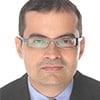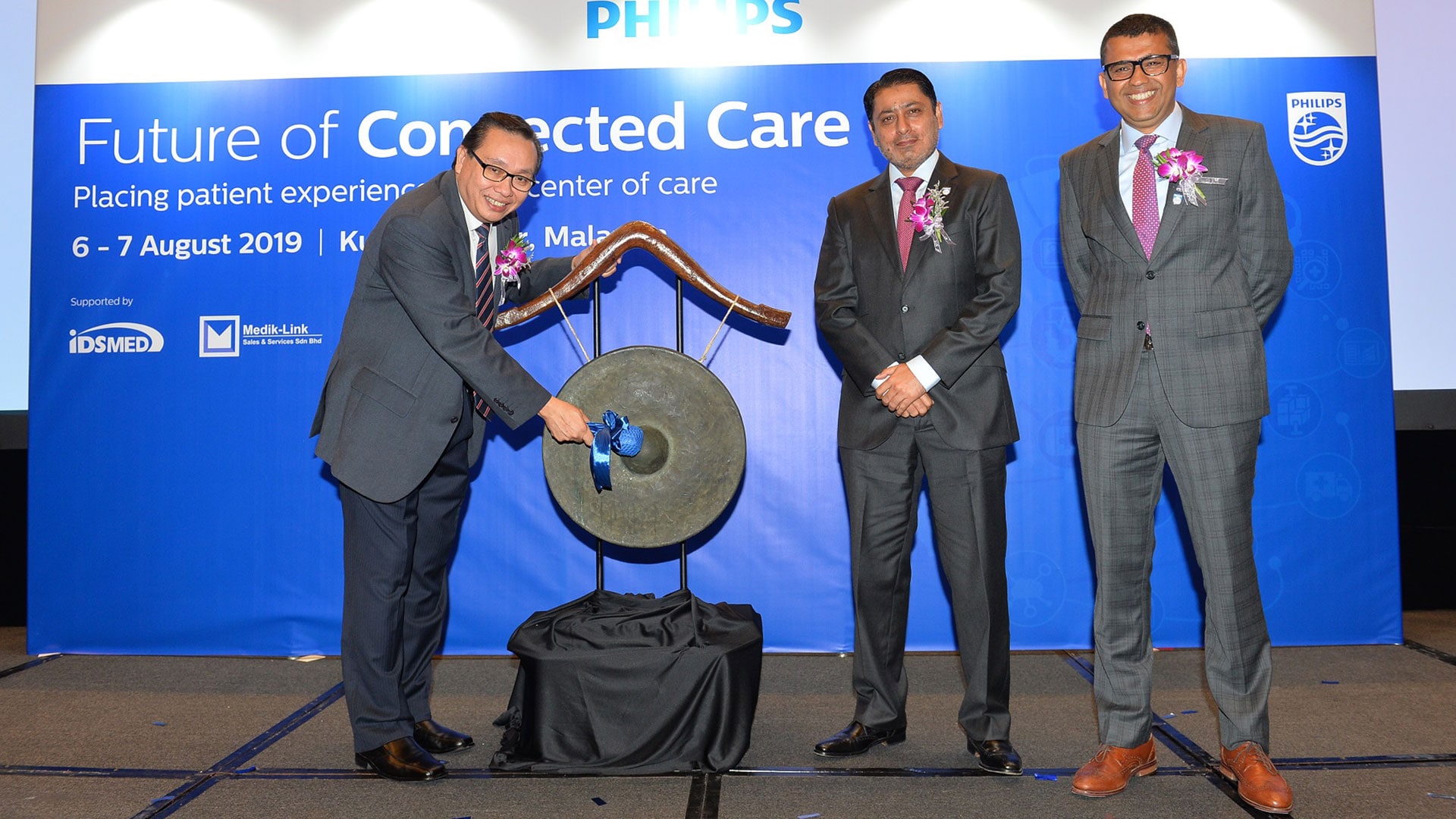Aug 06, 2019
Philips’ Connected Care Solutions Help Improve Patient Outcomes
Industry-leading devices, software and services combine to create smart, holistic solutions that help improve hospital workflow for better patient care
Kuala Lumpur – Royal Philips (NYSE: PHG, AEX: PHIA), a global leader in health technology, is delivering on its quadruple aim to improve health outcomes, patient and staff experiences and reduce cost of care, through the implementation of its connected care solutions. At the Philips Future of Connected Care Symposium held on 6 and 7 August 2019 in Kuala Lumpur, Philips showcased its integrated solutions that connect patients, technology and data to support clinical decisions at the point of care, improving the experience for both the patient and the healthcare professional, while at the same time optimising care delivery with integrated care pathways.
The symposium – officiated by Datuk Dr Christopher K.C. Lee, Deputy Director General (Research & Technical Support), Ministry of Health Malaysia, saw the attendance of close to 300 public and private healthcare professionals including hospital management personnel, hospital turnkey consultants and medical equipment consultants. Participants were able to see Philips’ industry-leading Monitoring Analytics and Therapeutic Care solutions in use at a mock hospital set-up, and how the devices, software and services come together in a seamless smart solution framework. Solutions demonstrated included those for major and demanding care settings such as the Emergency Department Critical Care Unit, Peri-Operative Care, General Ward Care, Foetal and Maternal Care and Cardiology, where the solutions enable smarter workflows and improve pathway solutions for hospitals.
Philips’ connected care solutions allow healthcare professionals to provide care to the patient at the point-of-care in a hospital setting as well as monitor the patient’s recovery at home. Beyond recovery, the connected care model also enables long-term monitoring of the patient’s health statistics, so potential issues can be addressed early to avoid hospitalisation. When we close the current gaps in patient monitoring with connected technology, we will experience more consistent patient care, seamless patient transitions and improved outcomes – and be one step closer to a value-based care ecosystem.
Muhammad Ali Jaleel
Country Manager, Personal Health and Health Systems Leader, Philips Malaysia
In a value-based care ecosystem, healthcare providers are rewarded for the quality of outcomes and not the amount of care provided, which promotes preventive healthcare and not curative healthcare in the long run.
In his speech, Datuk Dr Lee said technology can benefit healthcare personnel and patients but the humanity of healthcare professionals should come first. “Technology is a certainty and we prepare to embrace it. We prepare to be better clinicians, better healthcare professionals because of the technology, but we do not replace ourselves with technology. Going into IR4.0, we go with eyes wide open, with hearts in the right place, with preparedness to change the way we work,” Dr Lee said.
Dr Christopher Lee
Connecting care with information that matters
Many hospitals have enormous amounts of data in their systems and it can be challenging to access the right data, in the right context, to get an accurately comprehensive view of the patient’s condition. Not only does data need to be more integrated and accessible, it has to be actionable, wherever care takes place. Philips’ scalable, secure and interoperable health information management portfolio features AI-powered smart enterprise systems, devices, software and services. Philips’ solutions merge patient care solutions, advanced analytics and patient and workflow optimisation tools inside and outside the hospital – to provide data that is intelligently filtered and presented at the right time and place. With this comprehensive technology, there can be continuous monitoring throughout the hospital stay, where data is integrated, aggregated and analysed for early intervention or post-acute health management. This enables clinical-decision insights and the implementation of smart alarms in the hospital, besides improving the patient’s recovery at home via informed follow-up care and home-based monitoring.
The connected care approach within healthcare has significant potential in Malaysia, as in many other countries, where it has been shown to bring about better health outcomes by:
“The healthcare challenges in Malaysia are not uncommon, including an ageing society and increasing prevalence of chronic non-communicable diseases that combine to stretch the healthcare system to its limits. Insufficient numbers of skilled healthcare professionals and a concentration in the biggest cities also means not all Malaysians get the expert care they need while bed occupancy ratios are also uneven across the country. There are many features within the connected care framework that can help mitigate this challenge, such better home-based monitoring that allows patients to be discharged earlier, continuous monitoring of patient data to avoid deterioration of patients with chronic conditions and telehealth to enable consultation with specialists based in other parts of the country,” Ali added.
To find out more about Philips’ Connected Care solutions, please visit https://www.philips.com.my/healthcare/
About Royal Philips
Royal Philips (NYSE: PHG, AEX: PHIA) is a leading health technology company focused on improving people's health and enabling better outcomes across the health continuum from healthy living and prevention, to diagnosis, treatment and home care. Philips leverages advanced technology and deep clinical and consumer insights to deliver integrated solutions. Headquartered in the Netherlands, the company is a leader in diagnostic imaging, image-guided therapy, patient monitoring and health informatics, as well as in consumer health and home care. Philips generated 2018 sales of EUR 18.1 billion and employs approximately 78,000 employees with sales and services in more than 100 countries. News about Philips can be found at www.philips.com/newscenter.
Topics
Contacts

Sheo S. Rai
Senior Manager
Brand and Communications
Philips ASEAN Pacific









